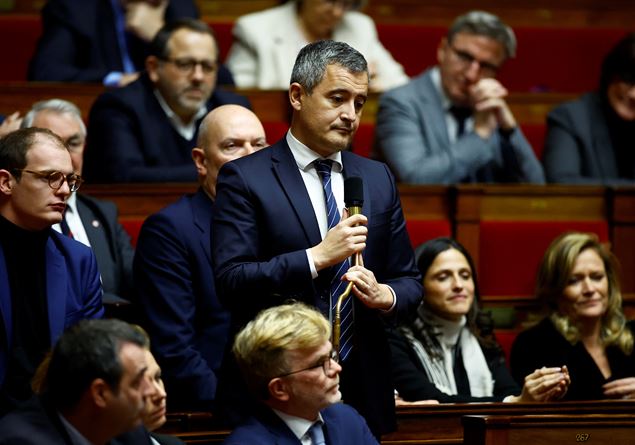
by Lorenzo Rossi
In France, Gérald Darmanin, who returned to government as Minister of Justice, quickly occupied center stage with an ambitious proposal: to create prisons “on a human scale”, distributed throughout the territory. A project that, at least on paper, sounds like a solution to the chronic overcrowding of French prisons. On Wednesday 25 December, during a visit to the Liancourt penitentiary centre, in the Oise department, Darmanin outlined his vision: small facilities dedicated to “small sentences”, less rigid in security criteria but more suitable for managing overcrowding.
But is this idea really revolutionary? Not exactly. Jean-François Fogliarino, general secretary of the National Union of Prison Directors, underlined that “the idea is not new”. Didier Migaud, Darmanin’s predecessor, had already raised the possibility of smaller penitentiary centres, with a model different from traditional prisons. Yet, the recent history of French penitentiary policy teaches that, more than words, actions count.
A system on the verge of collapse
The numbers of the French prison system are merciless: 80,000 prisoners in November, against a capacity of 62,000 places. A record that highlights the crisis of a model that is no longer sustainable. The plan launched in 2017, which envisaged the creation of 15,000 additional places by 2027, has stalled: less than a third of the new structures have been completed, and the most optimistic forecasts push completion to 2029.
Darmanin inherits an explosive situation, where it is not just a question of building new spaces, but of rethinking the system in its entirety. Among the options on the table are the redevelopment of old penitentiary buildings, the use of prefabricated modular structures and greater use of already existing models such as institutions for minors (EPM) and reintegration support centers (SAS).
The challenge of “human-scale prisons”
Reactions to Darmanin’s proposal are mixed. On the one hand, figures such as Wilfried Fonck, national secretary of the Ufap-Unsa penitentiary union, appreciate the idea: «Smaller centers improve detention and working conditions. Large complexes, with 900 inmates in facilities designed for 600, are a management nightmare.” On the other hand, strong skepticism emerges. «These stopgap solutions will not solve the problem without a regulation that allows early releases in case of overcrowding», warns Fogliarino.
The senator of the Républicains, Antoine Lefèvre, puts his finger on the wound: «Even the smallest structures risk failing if they do not respect the principle of individual incarceration. What do we gain if we continue to cram three people into each cell, with mattresses on the floor?”
A utopia to be built
The debate over this proposal reflects a larger problem: the French penitentiary system can no longer afford to be simply “republican in name”, as a recent report denounces. We need solutions that are not limited to “real estate policy”, but address the heart of the problem: reintegration, dignity and sustainable management of the sentence.
Darmanin faces a titanic challenge. “Small prisons” may be a piece of the puzzle, but without systemic change they risk remaining a utopia. Is France really ready to deal with its prisons? The answer will not come only from construction sites, but from the political ability to transform a vision into reality.
in the Reuters photo, French minister Gérald Darmanin.







